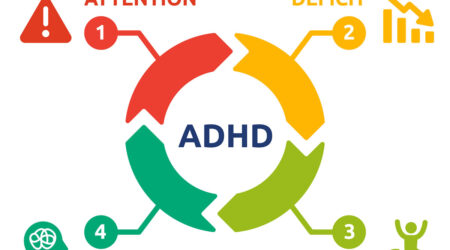5 Reasons Vitamin D Injections Could Improve Your Health
Vitamin D, often referred to as the “sunshine vitamin,” is a vital nutrient for maintaining overall health. Our bodies naturally produce it when exposed to sunlight, but factors like limited sun exposure, certain skin conditions, and dietary limitations can lead to a deficiency. Vitamin D injections have emerged as a potential solution for those struggling to reach optimal levels through traditional methods. Let’s delve into five reasons why vitamin D injections could significantly improve your health:
1. Bolstering Bone Health: The Bedrock of a Strong Body
Vitamin D’s most well-known benefit is its role in promoting strong bones. It aids in calcium absorption, the mineral that forms the foundation of our skeletal structure. Deficiency in vitamin D can lead to bone softening (osteomalacia) in adults and rickets in children, characterized by weak and brittle bones.
Studies have shown that vitamin D shots can significantly improve bone mineral density (BMD) in individuals with deficiency. A research review published in the journal Bone Reports found that vitamin D injections effectively increased BMD in the spine and hip in patients with osteoporosis, a condition marked by decreased bone density. This can be especially beneficial for those at a higher risk of fractures, such as post-menopausal women and older.
2. Shielding Yourself: A Stronger Immune System for Enhanced Defense
Vitamin D plays a critical role in regulating the immune system. It helps our body produce immune cells and antibodies, the body’s soldiers that fight off infections. Research suggests that vitamin D deficiency can weaken the immune response, making individuals more susceptible to illnesses like the common cold, influenza, and even autoimmune diseases.
Vitamin D injections have been shown to enhance immune function. A study published in the journal Nutrients demonstrated that vitamin D injections improved the body’s response to influenza vaccination in individuals with deficiency [2]. This can be a valuable tool for those who frequently experience infections or have compromised immune systems.
3. Uplifting Your Mood: Combating the Blues with Sunshine Support
Vitamin D deficiency has been linked to an increased risk of depression. Studies suggest that vitamin D receptors are present in areas of the brain that regulate mood. A deficiency in this crucial nutrient may disrupt the production of neurotransmitters like serotonin, which play a role in mood regulation.
Vitamin D injections may offer a glimmer of hope for those struggling with depression. A study published in the Journal of Clinical Psychiatry found that vitamin D injections, in conjunction with standard antidepressant therapy, resulted in greater improvement in symptoms compared to placebo injections. This indicates that vitamin D supplementation, particularly through injections for those with severe deficiency, could be a valuable addition to managing depression. Additionally, some research suggests that certain supplements, like l lysine, might aid in weight loss efforts, providing further support for overall mental and physical well-being.
4. Safeguarding Your Heart: A Potential Shield Against Cardiovascular Issues
Emerging research suggests a potential link between vitamin D deficiency and an increased risk of heart disease. Studies have found an association between low vitamin D levels and factors like high blood pressure, increased inflammation, and abnormal cholesterol levels, all of which contribute to cardiovascular problems.
While more research is needed to establish a definitive cause-and-effect relationship, some studies have shown promise for vitamin D injections in promoting heart health. A research review published in the journal Nutrients indicated that vitamin D supplementation, including injections, may improve blood pressure and endothelial function (the health of the inner lining of blood vessels) in individuals with deficiency [4].
5. Muscle Power and Performance: Keeping You Strong and Active
Vitamin D is essential for maintaining muscle function and strength. Studies have shown that vitamin D deficiency can lead to muscle weakness and an increased risk of falls, particularly in older adults.
Vitamin D injections may be beneficial for improving muscle function and strength. A study published in the journal The Cochrane Collaboration explored the effects of vitamin D supplementation on muscle strength in older adults. The study found that vitamin D, particularly when administered through injections, led to modest improvements in muscle strength. This can be a valuable aid for those looking to maintain mobility and physical function as they age. For enhanced results, incorporating supplements like FemGuard Balance may also provide additional support in maintaining overall muscle health and function.
Important Considerations: Consulting a Healthcare Professional is Key
While vitamin D injections offer potential benefits, it’s crucial to consult with a healthcare professional before considering them. A blood test can determine your vitamin D levels, and your doctor will assess if injections are necessary based on your individual needs and medical history.
Here are some key points to discuss with your doctor:
- Dosage: The appropriate dosage of vitamin D injections will vary depending on your individual needs and severity of deficiency.
- Potential Side Effects: Vitamin D injections are generally safe, but some potential side effects, like nausea, vomiting, and constipation, may occur. Your doctor can discuss these in detail and advise on managing them.
- Underlying Medical Conditions: Certain medical conditions may make vitamin D injections unsuitable. Be transparent with your doctor about any health issues you have.
Conclusion: Weighing the Benefits and Exploring Alternatives
Vitamin D injections offer a compelling option for individuals struggling to maintain optimal vitamin D levels through traditional methods like sun exposure and dietary intake. The potential benefits for bone health, immune function, mood regulation, heart health, and muscle strength are significant and can considerably enhance your overall well-being.











Leave a Reply